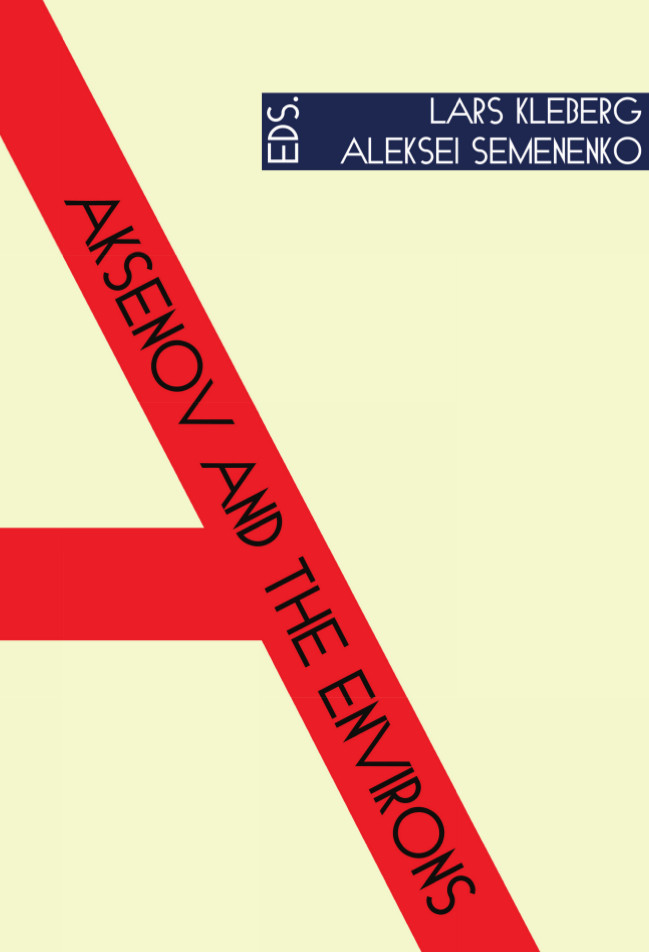Rosemari Elizabeth Baker: Shklovsky in the Cinema, 1926-1932 (2010)
Filed under thesis | Tags: · art history, cinema, film, film history, literary theory, literature
“The following research project is grounded in the interrelated contexts of the Russian intelligentsia’s ambivalent engagement with post-revolutionary culture and cinema’s rise as an artistic medium and instrument of Russian cultural development. By examining Viktor Shklovsky’s earliest activities in the Soviet film industry, this project will explore how narrative, aesthetic, and ideological programmes were repeatedly and variously moulded, undermined, and complicated by the twentieth-century Russian avant-garde interest in dissolving creative boundaries between the domains of the ‘internal’ (embracing private, individual, and domestic concerns) and ‘external’ (their public, communal, and social counterparts) in a bid ‘to turn space outwards’ (vyvorachivat´ prostranstvo vovne). These critical enquiries will lend themselves to an investigation of how the behaviours of Shklovsky, his colleagues, and his artistic creations were affected by internal and/or external loci of control and how these activities were reconciled (if at all) in a society where the relationship between freedom and necessity was in a constant state of fluctuation.
This research aims not simply to establish the extent and significance of Shklovsky’s influence on cinema as an individual, but rather to utilise his personal narrative for an assessment of the levels of interaction between theory and practice and between the verbal and the visual as integral to the intelligentsia movement. The project will investigate the part that Shklovsky played in conceptualising the boundaries, exchanges, and conflicts that arose between different artistic media and the critical institutions that developed around them, before considering how these relations changed as Soviet culture entered and emerged from the period of Cultural Revolution. In addition, an exploration of the effects of personal and professional tensions between different ideological groups will not only develop a better understanding of Shklovsky’s role in the cinema as theorist, critic, polemicist, screenwriter, and ‘creative administrator’, but will also help to establish the similarities and/or disparities between his film-works and contemporary cultural experience.” (Abstract)
Master Thesis
Faculty of Arts and Humanities, Durham University
209 pages
Lars Kleberg, Aleksei Semenko (eds.): Aksenov and the Environs (2012) [Russian, English]
Filed under book | Tags: · art, art history, avant-garde, constructivism, futurism, literature, russia, theatre

“Ivan Aleksandrovich Aksenov (1883-1935), critic, poet, and translator, was an outstanding representative of the Russian avant-garde art.
In the 1920s, Aksenov was close to the constructivists and worked in the theatre of Vsevolod Meyerhold, also serving as the dean of its directors’ school. Aksenov’s analysis of the problems of mis-en-scène, more geometrical than ideological, influenced a new generation of directors, headed by Sergei Eisenstein.
For different reasons, Ivan Aksenov’s life and works have remained unknown outside a small circle of initiated readers. During the Soviet era, he was soon marginalized because of his engineer’s view of art and his anti-ideological position. Later, specialised scholars ignored him, finding it too difficult to grasp his versatile personality, which was both original and representative of the multi-faceted Russian avant-garde movement.
This book of essays by authors from nine different countries sheds light on the writer’s extraordinary contribution to Russian culture.”
Contributions by Lars Kleberg, John Bowlt, Nicoletta Misler, and Janne Risum are in English.
Publisher Södertörns högskola, Huddinge, 2012
Södertörn Academic Studies 52
ISBN 9186069543, 9789186069544
242 pages
via DiVA Academic Archive
Jacques Rancière: Mute Speech: Literature, Critical Theory, and Politics (1998–) [ES, EN]
Filed under book | Tags: · art history, critical theory, history, history of literature, literary criticism, literature, philosophy, poetry, politics

“Jacques Rancière has continually unsettled political discourse, particularly through his questioning of aesthetic “distributions of the sensible,” which configure the limits of what can be seen and said. Widely recognized as a seminal work in Rancière’s corpus, the translation of which is long overdue, Mute Speech is an intellectual tour de force proposing a new framework for thinking about the history of art and literature. Rancière argues that our current notion of “literature” is a relatively recent creation, having first appeared in the wake of the French Revolution and with the rise of Romanticism. In its rejection of the system of representational hierarchies that had constituted belles-letters, “literature” is founded upon a radical equivalence in which all things are possible expressions of the life of a people. With an analysis reaching back to Plato, Aristotle, the German Romantics, Vico, and Cervantes and concluding with brilliant readings of Flaubert, Mallarmé, and Proust, Rancière demonstrates the uncontrollable democratic impulse lying at the heart of literature’s still-vital capacity for reinvention.”
First published in French as La Parole muette. Essai sur les contradictions de la littérature, Hachette Litteratures, 1998
English edition
Translated by James Swenson
Publisher Columbia University Press, 2011
New Directions in Critical Theory series
ISBN 0231151039, 9780231151030
194 pages
publisher (EN)
La palabra muda: ensayo sobre las contradicciones de la literatura (Spanish, trans. Cecilia González, 2009, 112 MB, added on 2014-3-6)
Mute Speech: Literature, Critical Theory, and Politics (English, trans. James Swenson, 2011)

